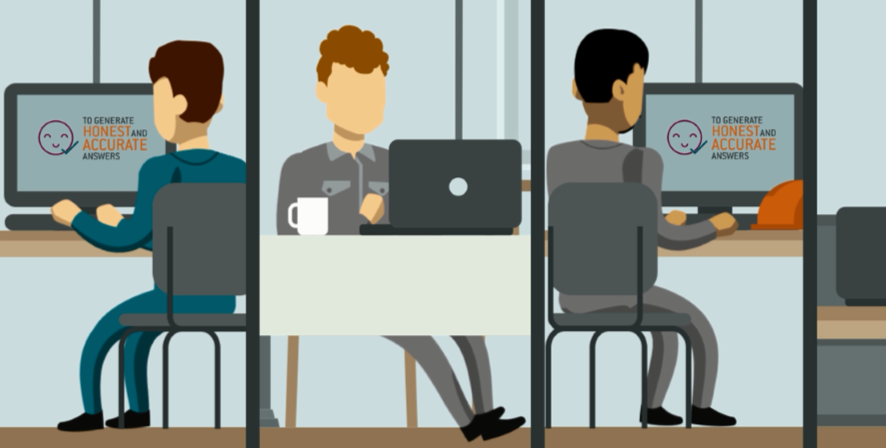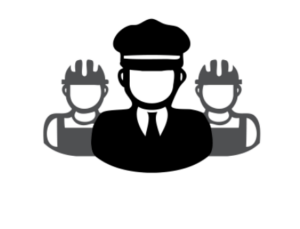Never lie to your doctor
As a popular saying goes, “You may lie to yourself, but you must never lie to your doctor.” Lying to your doctor about your health can worsen your problem, increase the risk of permanent injuries, or worse – lead to death. For your doctor to correctly diagnose and cure your illness, you must be honest to him about your health condition and symptoms.
The same can be said about the Safety Delta Diagnosis stage. In order to correctly identify and address weak areas in the vessel’s safety culture, the crew must give honest answers in the Crew Safety Diagnosis (CSD) Survey.
In this issue of Among us newsletter, we discuss the importance of giving honest answers in the CSD Survey and how to address dishonest survey answers.

What are unrealistic answers?
Unrealistic answers are survey responses that are too good to be true or are highly unlikely to occur in a pool of responses unless they are manipulated. These answers do not reflect the true experience and honest evaluation of the vessel’s safety condition.
How do we identify unrealistic answers?
The Safety Delta Admin runs a quality check of each CSD report. They use statistical tools to scan the data and identify potential unrealistic answers. Among other things, the data is scanned for identical answers, consistently positive or negative answers, and the completion time for the survey.
There are several reasons why the crew might give unrealistic or dishonest answers. But what is important for us to mention is that the crew must be well-familiarised with the philosophy behind Safety Delta. This will help them understand that the purpose of Safety Delta is to improve their own and their colleagues’ safety. Moreover, they should not be put under any kind of pressure that can hamper their sound judgement.
Unrealistic answers lead to an unhealthy safety culture
Unrealistic answers produce misleading CSD Reports, and the Dialogues based on these reports will only focus on points that do not address what the vessel truly needs. Eventually, the crew will carry out development activities that do not target actual issues in the vessel’s safety culture. In short, the crew will not be able to develop a proactive safety culture and accidents will continue to happen. Like a patient who lies to his doctor, a dishonest crew will not receive the right “treatment”.

The crew should:
- be aware of the negative consequences of giving dishonest answers
- not let superiors or colleagues influence their honest perception of the safety culture
- request for Safety Delta familiarisation if necessary

The senior officers should:
- encourage their subordinates to answer honestly
- ensure anonymity by providing an isolated room for the crew to take the survey
- assure the crew that their honest answers, no matter how negative, are vital, valid, and appreciated
- lead the building of an open and trusting atmosphere on board

The vessel management should
- set up conditions that can support the Safety Delta Diagnosis
- not use Safety Delta Diagnosis as a basis for evaluating the crew or the officer’s performance
- address survey fatigue by opting for shorter and more focused surveys via Safety Delta Building blocks
Start the proactive safety culture now
As in health and medical science, nothing beats prevention and early detection of the problems. In order to strengthen the vessel’s safety culture, the crew, the officers, and the management should work together in establishing an open and trusting atmosphere and promoting realistic and honest answers to the CSD survey.
If you wish to learn more about how to encourage your crew to give honest answers, you may revisit the Ethical Guidelines for the Safety Delta process.
Among Us is a monthly digital newsletter, primarily for Safety Delta members, but also for those who want to get a ‘sneak peek’ at the experiences gained by those of us who are already ‘insiders’. It also presents the developments of Safety Delta.

